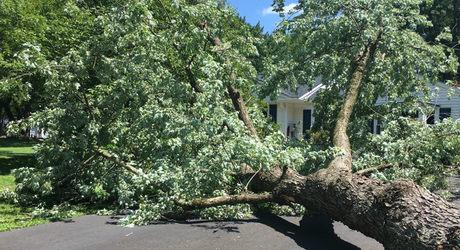Non-life insurance, also known as general insurance, is an essential part of our financial protection plan. It helps cover unexpected costs when we face accidents, theft, property damage, or other unforeseen events. But what exactly falls under non-life insurance? In this blog, we will dive deeper into the different types of non-life insurance and their applications.
What is non-life insurance?
Non-life insurance provides coverage for damage to objects or liability for harm you may cause to others. Unlike life insurance, which pays out a fixed sum, non-life insurance compensates the actual damage incurred, up to a certain limit. The main goal is to mitigate the financial impact of unexpected events.
The main types of non-life insurance:
- Car insurance One of the most well-known forms of non-life insurance is car insurance. It covers damage to your own vehicle, damage to others, and sometimes personal injury. In many countries, including the Netherlands, at least third-party liability (WA) insurance is mandatory. You can opt for additional coverage, such as third-party fire and theft or comprehensive insurance, which also covers damage to your own car.
- Home insurance (Building and Contents Insurance) As a homeowner, a building insurance policy is essential. This insurance covers damage to your home, such as from fire, storm, or burglary. Contents insurance, on the other hand, covers the value of your personal belongings inside the home, such as furniture, electronics, and clothing.
- Liability insurance A liability insurance policy protects you financially if you accidentally cause damage to others or their property. This can range from knocking over an expensive vase at a friend’s house to causing injury to a passerby. While not mandatory, liability insurance is highly recommended.
- Travel insurance Travel insurance covers unexpected costs during your holiday, such as theft, medical expenses, or trip cancellations. You can choose between single-trip or annual travel insurance, depending on how often you travel.
- Legal expenses insurance Legal expenses insurance provides legal assistance in case of disputes. Whether it’s a work-related conflict, a dispute with a seller, or a neighborhood issue, this insurance offers legal advice and sometimes covers lawyer fees.
- Health insurance (Supplementary) While basic health insurance is mandatory in countries like the Netherlands, there are also supplementary health insurance options to cover additional costs, such as dental care, physical therapy, or alternative treatments.
Why is it important to have non-life insurance?
Unexpected events can have significant financial consequences. Without non-life insurance, the costs of, for instance, a car accident, burglary, or lawsuit can quickly amount to thousands of euros. Non-life insurance offers financial protection, provides peace of mind, and ensures you recover faster after a setback.
Conclusion; Non-life insurance is a crucial aspect of sound financial planning. It protects you from the consequences of damage to your property or someone else’s, and offers peace of mind in uncertain situations. Whether it’s your home, car, holiday, or legal disputes, there is always a suitable insurance policy to cover your needs.






